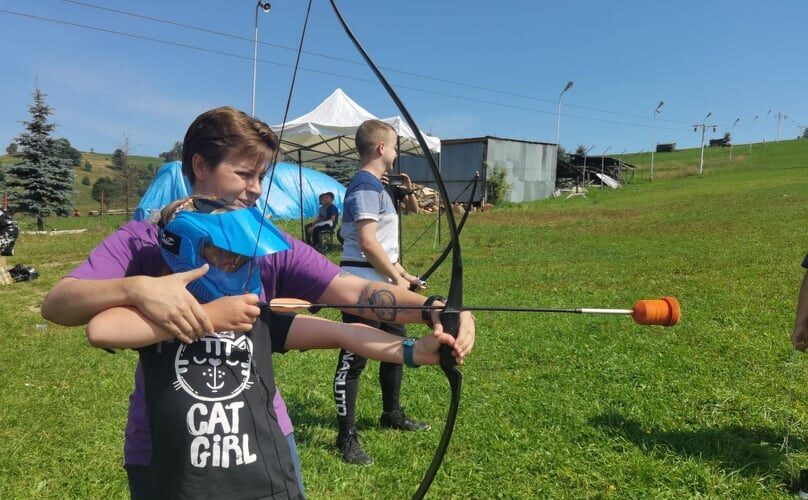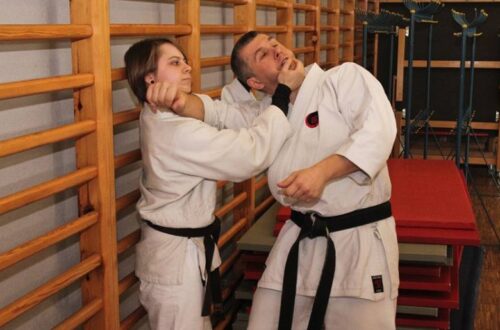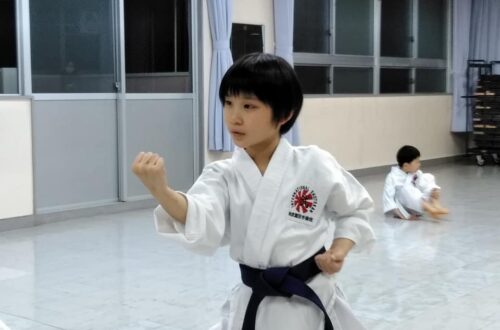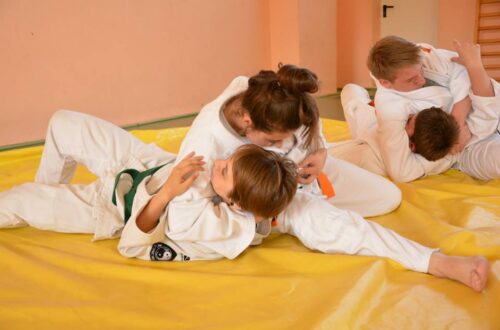
Zawód? Trener. Czas pracy? 24/7|Profession? Coach. Working time? 24/7
Jakiś czas temu przeczytałam w Internecie, że być trenerem to najłatwiejsza praca na świecie. Niewymagająca a dobrze płatna. Zszokowało mnie to na tyle, że postanowiłam napisać artykuł na temat pracy trenera.
Bycie trenerem to utrapienie.
Chciałeś położyć się wcześniej spać?
Zapomnij, trzeba zaplanować jutrzejszy trening.
Zamierzałeś właśnie wypić kawę?
Ups, chyba ostygnie, nim skończysz odpowiadać na pytania spragnionego wiedzy studenta.
Wakacje, powiadasz?
Ciężka sprawa, bo widzisz… jest kwestia do rozwiązania.
Bycie trenerem to przekleństwo.
(Zwłaszcza gdy to ja jestem uczniem. Czasem naprawdę współczuję moim trenerom.)
Dlaczego?
Ponieważ zawód trenera wiąże się z ogromną odpowiedzialnością.
To nie jest praca „odtąd dotąd”. Trener musi być jednocześnie pedagogiem, psychologiem, terapeutą, przyjacielem, matką i ojcem.
I autorytetem.
Przekazuje wiedzę i motywuje. Zmusza do przekraczania strefy komfortu i dopinguje na zawodach. Wytyka błędy byś mógł stawać się lepszy oraz wspiera.
Jeśli spełnia te warunki – jest sensei.
Jaka jest różnica między mistrzem [trenerem – sensei] a uczniem?
Mistrz upadał więcej razy niż uczeń w ogóle próbował.
Ma za sobą lata doświadczenia, prób i błędów. Sukcesy i porażki. Możesz zaufać, że ma również za sobą 98% problemów, z którymi aktualnie borykasz się w trakcie ćwiczeń. Sam był zawodnikiem, uczniem, więc wie co w trawie piszczy.
W głowie ma tysiące gigabajtów obejmujących techniki, anatomię, biomechanikę, fizjologię, zasady odnowy biologicznej i wiele innych ważnych tematów. Obudzony w środku nocy powie Ci czym jest siła ekscentryczna i koncentryczna. Spytany o znaczenie bloku w 3 sekwencji kata odpowie bardzo wyczerpująco. W małym palcu ma pierwszą pomoc i zastosuje swoją wiedzę gdy będziesz tego potrzebować.
Musi być zawsze krok przed Tobą. Na treningu liczy zgodnie z rytmem gdy wykonujesz techniki. Ale mimo, że mówi „siedem” w głowie ma już kolejne ćwiczenie. (Dlatego trzeba wybaczyć gdy zamiast „osiem” powie „trzy”.)
Tłumaczy Ci kilkadziesiąt razy tę samą technikę. Robi to powoli lub szybko, z obszernymi wyjaśnieniami, analizą syntetyczną lub bez. Z humorem lub śmiertelną powagą. Byleby do Ciebie dotarło.
Mimo skrajnego zmęczenia uśmiechnie się, i kolejny raz zademonstruje na Twoją prośbę tobi ushiro mawashi geri. I nie pokaże, że robi to już tylko dzięki sile woli.
Chce jak najlepiej wykorzystać Twój czas na sali treningowej. Zależy mu, żebyś się doskonalił i piął w górę. Coraz wyżej i wyżej, aż będzie mógł z radością stwierdzić, że uczeń przerósł mistrza.
Więc szanuj go. Doceń jego pracę. Słuchaj co mówi i patrz uważnie co robi. Ucz się od niego. I wykaż się choć odrobiną entuzjazmu w podziękowaniu za jego trud. W przeciwnym razie mógłby stwierdzić, że nie jest potrzebny i jeszcze gotów znaleźć sobie inne zajęcie.
A chyba nie chcesz, żeby zrezygnował z „sensejowania” i zajął się połowem ryb za pomocą kormoranów*. Prawda?
Jak mawiają Japończycy: „yoi sensei ga iru toki wa, sutairu no namae wa kankei arimasen” co w dosłownym tłumaczeniu znaczy, że gdy masz dobrego nauczyciela, nazwa stylu nie ma znaczenia. I jest w tym sporo racji.
SENSEI NI REI!
__________________________________
*Połowy za pomocą kormoranów to jedna z najstarszych metod łowienia ryb, stosowana w dawnych Chinach i Japonii. Rybacy wykorzystywali w tym celu kormorany, którym wiązali węzeł u podstawy gardeł tak, by zapobiec połknięciu ryb przez te ogromne ptaki. (Ot, taka ciekawostka).
#trener #sensei #odpowiedzialność #ciężkapraca
Some time ago I read on the Internet that being a trainer is the easiest job in the world. Undemanding and well paid.
It shocked me enough that I decided to write an article about the work of the trainer.
Being a coach is a nightmare.
Did you want to go to bed earlier?
Forget it, you have to plan your training tomorrow.
Were you just gonna have a coffee?
Oops, I think it will cool down before you finish answering the questions of the knowledge-thirsty student.
Vacation, you say?
Hard case because you see… there is a question to be solved.
Being a trainer is a curse.
(Especially when I’m a student. Sometimes I really feel for my coaches.)
Why?
Because being a trainer is associated with great responsibility. This is not a job „from now on.” The trainer must be an educator, psychologist, therapist, friend, mother and father at the same time. And authority.
It transmits knowledge and motivates. It forces you to go beyond your comfort zone and cheers you on at competitions. He points out mistakes so that you can become better and supports you.
If he meets these conditions, he is sensei.
What is the difference between a master [trainer – sensei] and a student?
The Master has fallen more times than the student ever tried.
He has years of experience, trial and error behind him. Successes and failures. You can trust that she also has 98% of the problems you currently struggle with while exercising. He was a competitor himself, a student, so he knows your situation.
He has thousands of gigabytes in his head covering techniques, anatomy, biomechanics, physiology, the principles of wellness, and many other important topics.
Woken up in the middle of the night, he will tell you what an eccentric and concentric force is. When asked about the meaning of the block in the 3rd kata sequence, he will answer very exhaustively.
He has first aid in his little finger and will apply his knowledge when you need it.
There must always be a step ahead of you. In training, it counts according to the rhythm as you perform the techniques. But even though he says „seven” he already has another exercise in his head. (Therefore you have to forgive if he says „three” instead of „eight”.)
He explains the same technique to you dozens of times. It does it slowly or quickly, with or without extensive explanations, synthetic analysis. With humor or deadly seriousness. As long as it gets to you.
Despite the extreme exhaustion, she will smile and demonstrate again at your request tobi ushiro mawashi geri. And it will not show that it does it only by willpower.
He want to make the most of your time in the training room. He wants you to improve and go up. Higher and higher, until he can happily say that the apprentice has surpassed the master.
So, please, respect him. Appreciate his work. Listen to what he says and watch carefully what he does. Learn from him. And show a little bit of enthusiasm in thanking him for his efforts. Otherwise, he might find that he is not needed and is ready to find another job. And you don’t want him to give up „sensing” and go fishing with cormorants *. Right?
As the Japanese say: „yoi sensei ga iru toki wa, sutairu no namae wa kankei arimasen” which literally means that when you have a good teacher, the name of the style does not matter. And there is a lot of truth in that.
SENSEI NI REI!
__________________________________
*Cormorant fishing is one of the oldest methods of fishing, used in ancient China and Japan. For this purpose, fishermen used cormorants, with which they tied a knot at the base of their throats to prevent the enormous birds from swallowing the fish. (Oh, such a curiosity)





